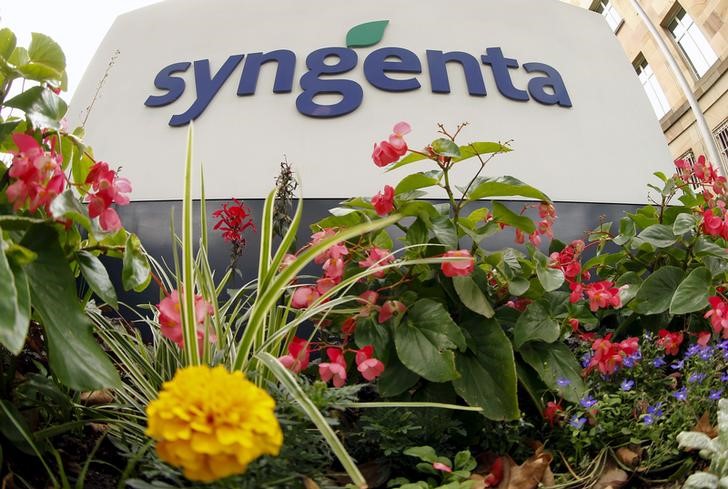By Ludwig Burger
FRANKFURT (Reuters) - Syngenta (VX:SYNN) and other major seeds and crop chemicals companies are intensively discussing tie-ups, the Financial Times quoted the Swiss firm's chairman as saying on Wednesday, adding to a chorus of voices predicting a sector shake-up.
Conversations among the leading players in the industry are "extremely active", the newspaper quoted Michel Demare as saying in an interview.
"We are all convinced that (the sector) will look quite different in six months."
U.S. group Monsanto (N:MON), which withdrew a proposal to take over Syngenta in August, said on Tuesday its top executives were discussing whether they should acquire or merge with major rivals in the seed and agrochemical industries.
The winning company in future will be one that can combine seeds and crop chemicals as part of an integrated offer, Demare said.
Syngenta is the No.1 in crop chemicals with a 19 percent market share last year, just ahead of Bayer's (DE:BAYGn) CropScience division with 18 percent.
Monsanto is the leader in seeds with a 26 percent market share, followed by Dupont Pioneer's (N:DD) 21 percent.
Demare's remarks echo those of Dupont interim Chief Executive Edward Breen, who said last month the U.S. group was talking to rivals about its agriculture business.
That was less than a week after Dow Chemical (N:DOW) announced a strategic review of its farm chemicals and seeds unit, ranked number four and seven respectively, in these industries.
The idea of marketing large offerings of seeds and pesticides in a bundle, and even adding computer and satellite-guided farming solutions on top, has been promoted by Monsanto, Syngenta and Bayer, among others.
But the major crop chemicals players, Syngenta and Bayer, have ruled themselves out as easy targets of seed makers.
Syngenta fiercely rebuffed Monsanto's repeated overtures this year, while Bayer on Wednesday reaffirmed it would not part with its crop chemicals business, describing it as an "integral part" of the German healthcare group..
While some analysts have said weak third-quarter demand from farmers, due to faltering crop and grain prices, has prompted the race to bulk up, Syngenta's Demare told the Financial Times that the current talks were fallout from Monsanto's failed move.

"This is the result of the Monsanto approach for Syngenta, which for sure has shaken the whole industry ... It has created the huge activity in which everyone is speaking to each other."